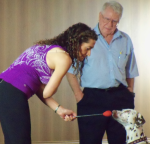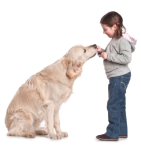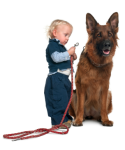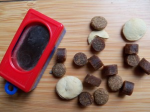
Animals are always learning. The animals we know today are the fruit of millions of years of evolution and have been learning by consequence all this time. They continuously put things together, draw conclusions and figure out how to avoid…

We all know dogs that jump on people, push them out of their way to get through doors, rush their way in and out of the car or the crate and up and down the stairs. Dogs can be impatient…

Most dog trainers today understand the value of using treats. Dogs are more focused, learn faster, are more motivated and the results speak for themselves. If personal experience isn’t enough, a recent study even confirmed that dogs worked better for…

Barking, lunging, bolting, running away, tucking their tail, avoiding, etc. Dogs have many ways to express their fear. How we react in return will often determine whether they get over it or whether it gets worse. Some fears can be…

When the dog pays attention, a walk in the park or a training exercise are easy, fun and rewarding. When the dog spends the majority of the time looking for anything else to do besides focusing on the human, the…

Dogs are a wonderful addition to any household and growing up with a dog provides a child with valuable learning experiences about respect and care of another being. Most of all, growing up with a dog can be fun and…

Barking, aggression, destruction, separation anxiety, resource guarding, … Many behavior issues that directly affect the dogs welfare can be attributed to stress and fear. These emotions dominate the dog’s life experience and are often responsible for the human/dog relationship breakdown.…

Reward based training methods are slowly gaining in popularity among dog professionals including: trainers, veterinarians and behaviorists. But popular beliefs about the value of punishing for so-called ‘bad’ behaviors still run strong. In a society where we justify scolding, handing…

Most owners and trainers frequently rely on high value treats when working with their dog. We may use them to get better focus during dog classes, more motivation when working outdoors and they generally help us work through the more…